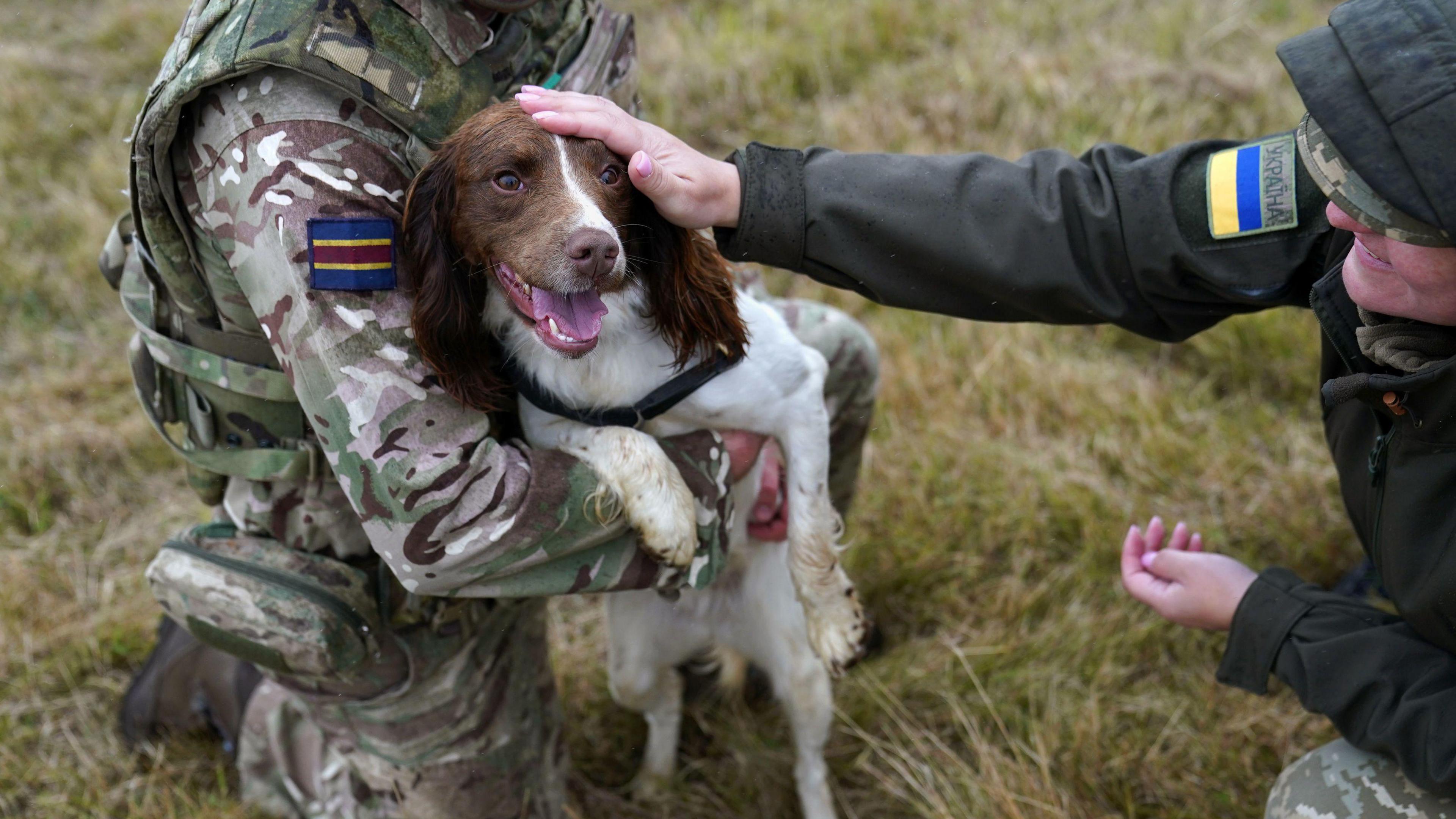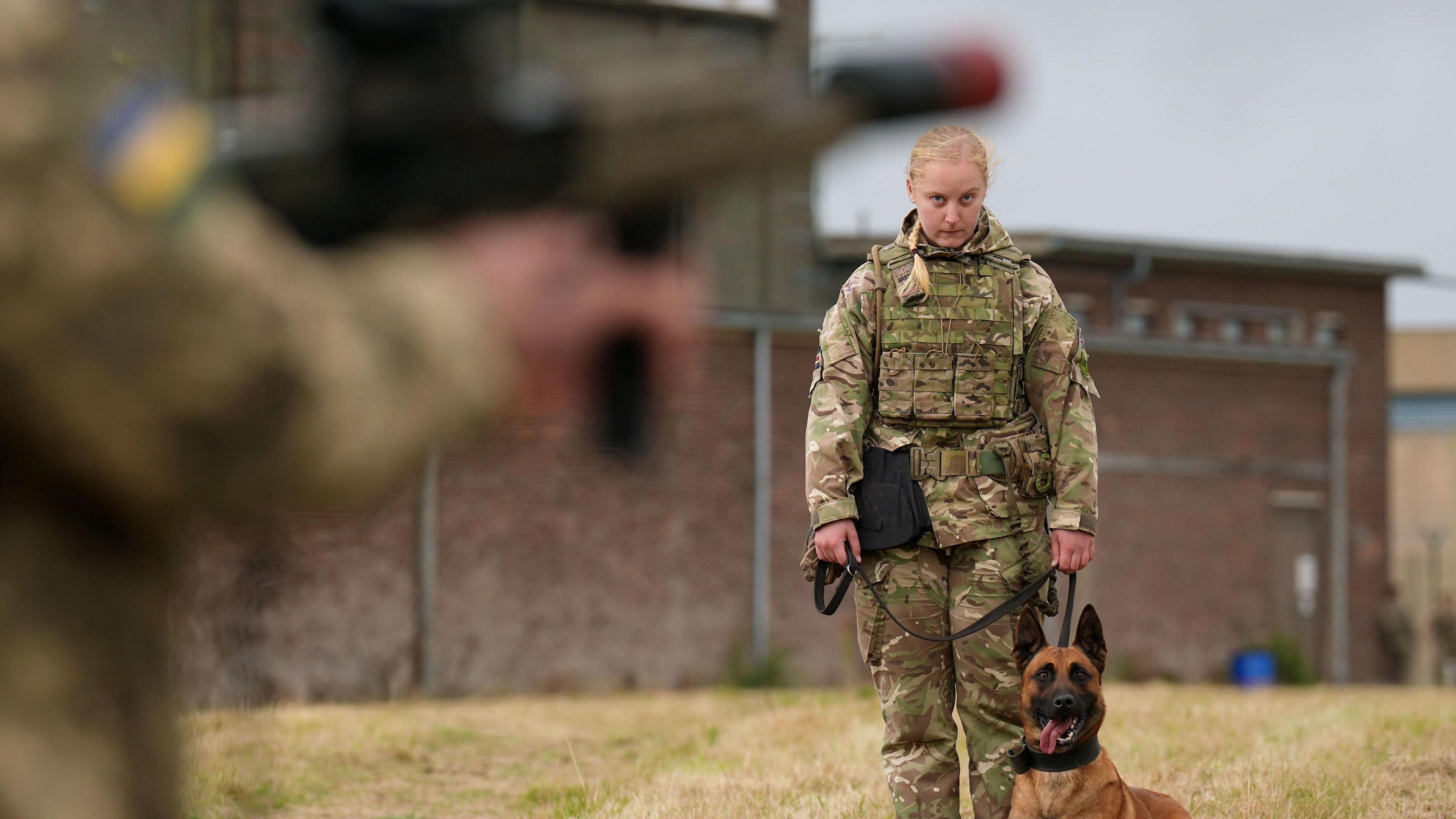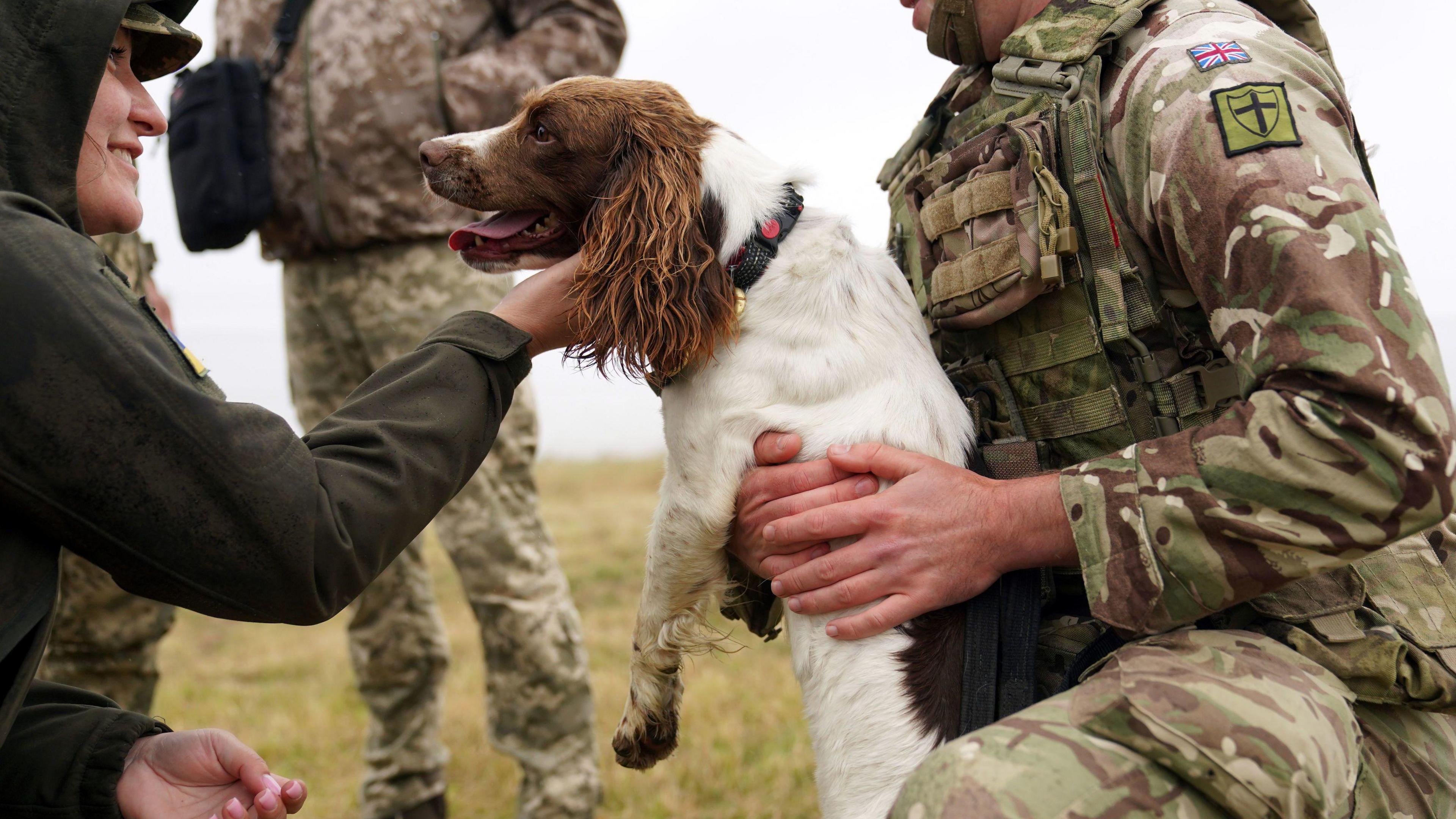Military dogs save hundreds, says Ukrainian soldier

Ukrainian personnel have taken part in dog handling courses in the UK since the Russian invasion
- Published
A Ukrainian soldier learning dog-handling techniques in the UK says the animals save hundreds of lives on the front line.
The 24-year-old, who cannot be identified for security reasons, is one of 20 Ukrainians being taught by British Army personnel at a barracks in the East Midlands.
It is part an operation that started in 2022 to support Ukraine's armed forces.
The handler said he had wanted to work with dogs since he was a child.

British Army dog handler Pte Freya Brown was joined by her military working dog Zac
Since Russia's invasion, 45,000 Ukrainian personnel have received training as part of Operation Interflex.
Speaking through an interpreter at the barracks, the soldier said: "When different sabotage groups are entering the area and they are mining the roads, for example, we are using dogs there to be able to go through this area safely.
"We have lots of different areas where the combat actions are not so active, but there is still a threat there, so there is a threat to life.
"I always liked to work with dogs since I was a child and now I really like the idea that I can pass on this knowledge.
"They save tens or hundreds of lives," he said.

Dogs play a crucial role in making areas safe for soldiers and civilians in Ukraine
The training course included techniques on how to carry out effective patrols, search and rescue operations, and explosive device searches using dogs.
Sgt Chris Jacques, of the 1st Military Working Dog Regiment, said the training also involved using "stress factors" such as replicating battlefield sounds around the dogs.
He said: "It's important to give something back and also to see, especially in the current climate, how dogs can be used in the environment they [Ukrainians] find themselves in at the minute.
"We see what challenges they've had to deal with, we see what factors they're having to consider which we, at the minute, aren't having to consider, and they've been really engaging."